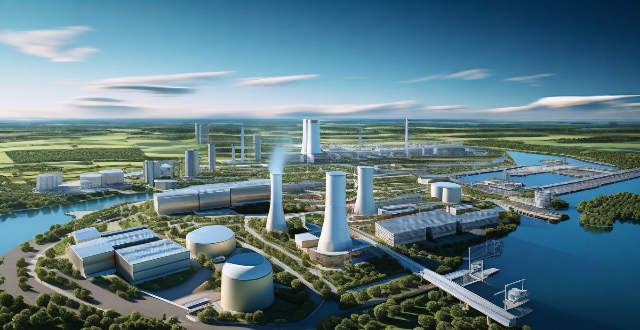Clean production technologies refer to the use of environmentally friendly and sustainable methods in various industries. These technologies aim to reduce waste, conserve resources, and minimize pollution. Some examples include using energy-efficient machines, recycling materials, organic farming, precision agriculture, solar power, wind power, geothermal energy, electric vehicles, public transportation, and carpooling/ridesharing. By adopting these practices, businesses and individuals can contribute to a more sustainable future and protect our planet for generations to come.

Clean Production Technologies in Different Industries
Clean production technologies refer to the use of environmentally friendly and sustainable methods in various industries. These technologies aim to reduce waste, conserve resources, and minimize pollution. Here are some examples of clean production technologies in different industries:
Manufacturing Industry
- Energy-efficient machines: Using energy-efficient machines can help reduce energy consumption and carbon emissions. For example, using LED lights instead of traditional bulbs can significantly reduce energy usage.
- Recycling materials: Recycling materials such as metals, plastics, and glass can help reduce waste and conserve resources. For example, recycling aluminum cans can save up to 95% of the energy required to produce new aluminum.
- Water conservation: Implementing water conservation measures such as rainwater harvesting and reusing treated wastewater can help reduce water usage and conserve this valuable resource.
Agriculture Industry
- Organic farming: Organic farming practices avoid the use of synthetic fertilizers and pesticides, which can harm the environment and human health. Instead, organic farmers use natural methods such as composting and crop rotation to maintain soil health and control pests.
- Precision agriculture: Precision agriculture involves using technology such as sensors and drones to monitor crop growth and apply inputs like fertilizers and water more efficiently. This reduces waste and helps conserve resources.
- Aquaponics: Aquaponics is a system that combines aquaculture (raising fish) with hydroponics (growing plants without soil). The fish waste provides nutrients for the plants, while the plants help filter the water for the fish. This creates a closed-loop system that conserves water and reduces waste.
Energy Industry
- Solar power: Solar power is a clean and renewable source of energy that does not produce harmful emissions or pollutants. Installing solar panels on buildings can help reduce reliance on fossil fuels and lower energy bills.
- Wind power: Wind power is another clean and renewable source of energy that harnesses the power of wind to generate electricity. Wind turbines do not produce emissions or pollutants, making them an environmentally friendly option.
- Geothermal energy: Geothermal energy involves tapping into the earth's natural heat to generate electricity or provide heating and cooling for buildings. This renewable source of energy has a small environmental footprint compared to fossil fuels.
Transportation Industry
- Electric vehicles: Electric vehicles (EVs) run on electricity instead of gasoline or diesel, reducing tailpipe emissions and improving air quality. Charging EVs with renewable sources of energy further reduces their environmental impact.
- Public transportation: Encouraging the use of public transportation such as buses, trains, and subways can help reduce traffic congestion and air pollution by reducing the number of vehicles on the road.
- Carpooling and ridesharing: Carpooling and ridesharing programs allow multiple people to share a vehicle for commuting or other trips, reducing the number of cars on the road and decreasing emissions.
These are just a few examples of clean production technologies in different industries. By adopting these practices, businesses and individuals can contribute to a more sustainable future and protect our planet for generations to come.